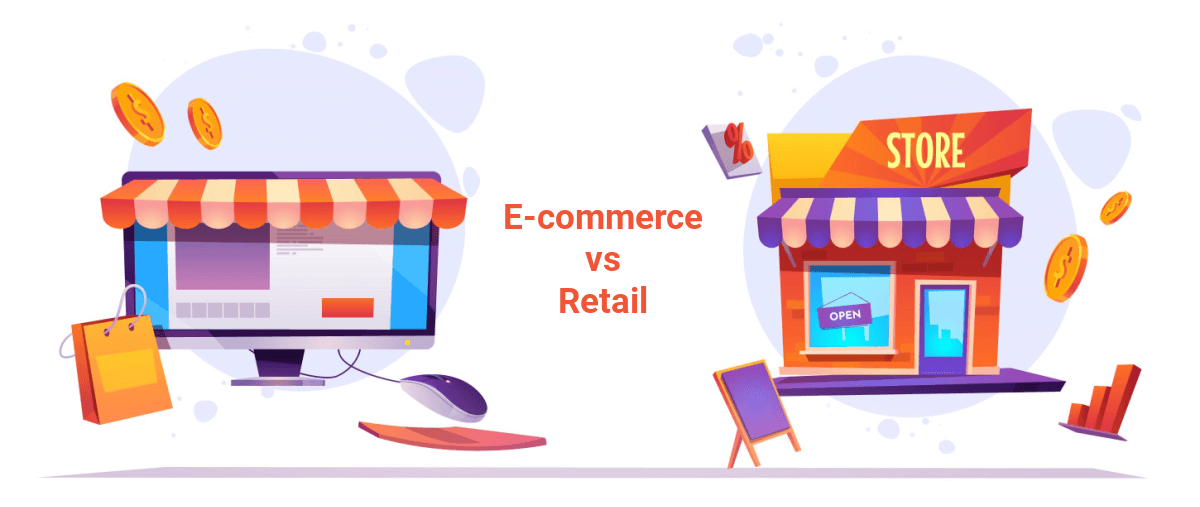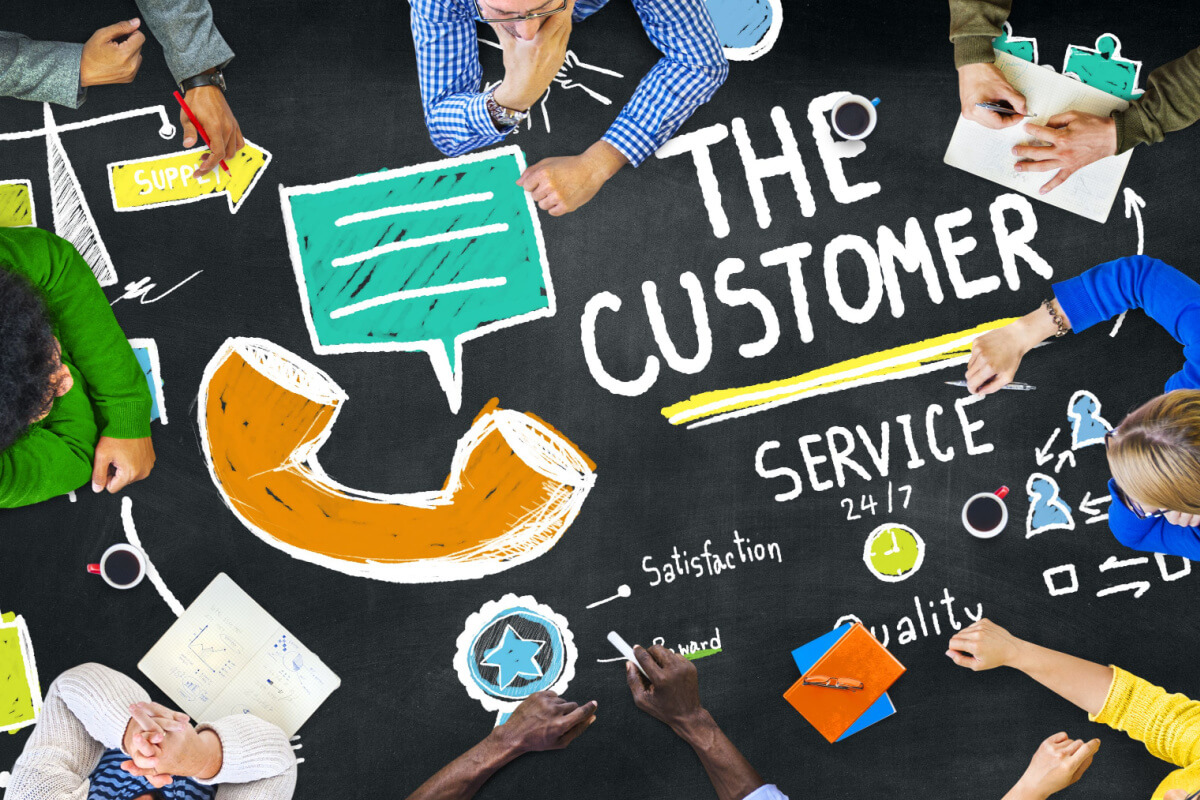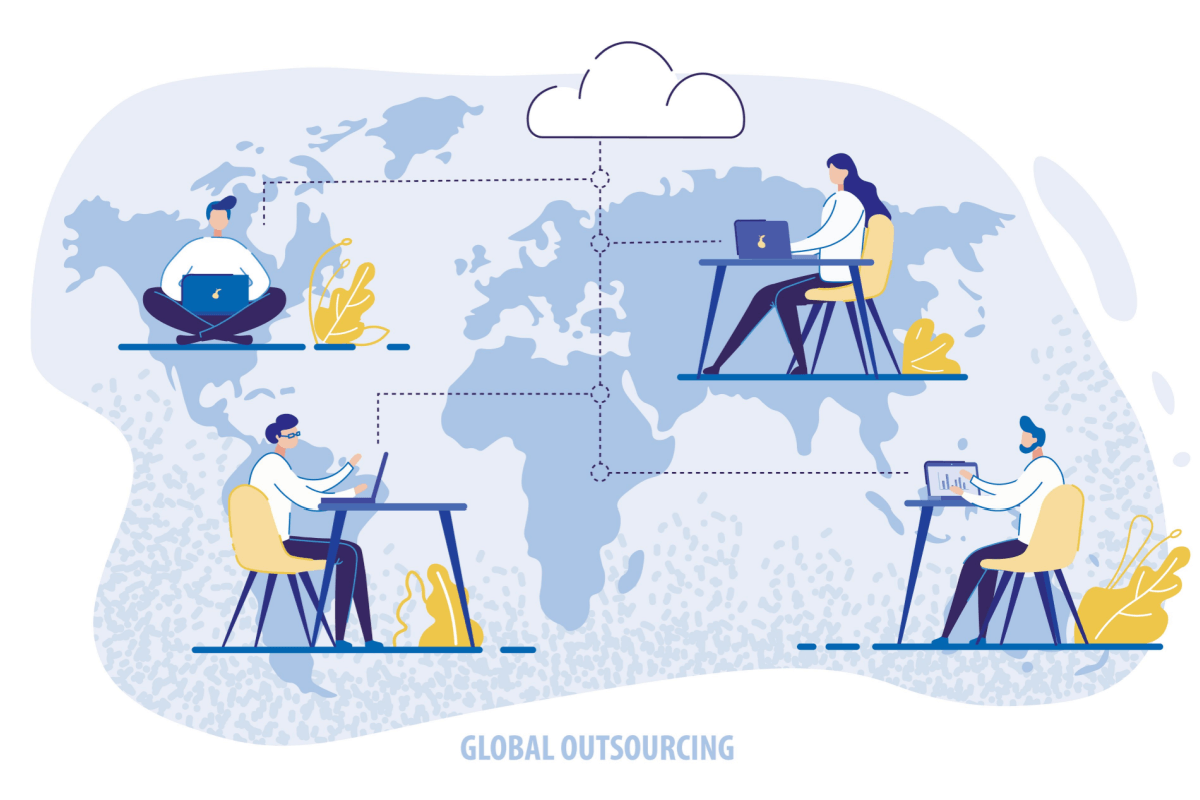Table of Contents
Running an e-commerce business involves a lot of work. You’re focused on growing sales and revenue. While you consider customer service a vital function, you may lack the time and the knowledge to manage it effectively.
Customer service specialists help make your processes run more smoothly, productively, and cost-effectively. They are the people you need when the going gets tough.
This user-friendly guide will teach you how to get the most out of outsourcing e-commerce customer service specialists. Read on to find out.
What Does E-commerce Customer Service Outsourcing Mean?
E-commerce customer service outsourcing is hiring a business process outsourcing (BPO) provider to take care of your customer-related activities. The third-party company deals with online buyers’ orders, inquiries, issues, and other matters connected to your products or services.
The external service provider’s customer service team can help your business generate more income by improving brand image and loyalty. The team is skilled in communicating with consumers and transforming their buying journey into a worthwhile experience.
Through outsourced e-commerce customer service, your online retail can run better. Assigning customer support to a call center service company boosts growth opportunities amid the fierce competition in the online market.
The global e-commerce industry is awash with online retailers and wholesalers selling countless products and merchandise. The common business tactic of many is to offer them at prices lower than the competitors to generate sales. But the better alternative without hurting your bottom line is to provide a first-rate customer experience through outsourcing.
Outsourcing customer support is a widely accepted business practice to reduce operating costs and enhance customer satisfaction. An outsourced customer service team can guide online shoppers with their purchasing decisions. It can also suggest the best products or services based on their preferences.
What Is the Difference Between E-commerce Customer Service and Retail Customer Service?

Retail customer service is the assistance that brick-and-mortar stores or establishments offer their buyers or patrons. It assists them over the phone or face-to-face by helping resolve issues and answering their questions about the products or goods bought.
E-commerce customer service, on the other hand, combines traditional retail customer service skills and e-commerce business practices. The field is more complicated than its brick-and-mortar counterpart, mostly because all the transactions are done online, and both buyer and seller communicate virtually.
In particular, the response time in e-commerce customer service is critical. Customers want immediate responses to their product questions. Potential buyers tend to switch to your competitors if their requests are not met or if they are not satisfied with the service.
Online shoppers are getting smarter and more demanding. Emplifi, a customer experience platform provider, recently released a report saying that 86% of consumers will leave a brand due to poor customer service. One in six e-commerce buyers will abandon a purchase because of one bad experience.
The 2022 study shows that slow response time is the primary contributor to a negative encounter. That is followed by a lack of around-the-clock customer service support. Of the 2,000 consumers surveyed from the U.S. and the UK, 52% expect brands to reply via digital channels in less than 60 minutes.
What Are E-commerce Customer Service Specialists?

E-commerce customer service specialists answer online customer questions about goods, products, or services sold on the virtual market. They help internet shoppers with the item description and selection and offer available options.
Many customer service agents are skilled in outsourced email support to communicate with online buyers regarding requests, complaints, and issues. They document consumer interaction and process ticketing systems.
A specialist’s responsibility is to provide quick and correct resolution of customer inquiries. Giving them additional information and escalating the issue to a more qualified service professional are the two best ways to meet their needs.
Customer support associates can be involved in inventory management outsourcing to help e-commerce patrons return the products bought. They lessen the buyer’s inconvenience by ensuring that the returns process will be as smooth and prompt as possible.
One of the specialist’s roles is to analyze the customer’s current situation and choose the best action plan. They look into product details, company policies, and other relevant data to deliver accurate information to consumers and address their concerns.
Other Responsibilities of E-commerce Customer Service Specialists
Specialists report to a supervisor, manager, or team leader. They can use outsourced data entry services to input and update product information. Here are the other duties.
- Handling ongoing customer relationships using customer relationship management (CRM) tools
- Helping buyers with after-sales service concerns
- Assisting consumers with online orders
- Processing orders and payments
- Updating and keeping customer correspondence
- Managing returns and exchanges of online purchases
- Offering customer support through phone calls, live chat, social media, and email
Basic Job Requirements of E-commerce Customer Service Specialists
The qualifications sought in e-commerce customer service aspirants are:
- High school diploma or equivalent for entry-level positions (some employers require a bachelor’s degree)
- Proficiency in office applications (Word, Excel, Outlook, and similar programs)
- Good e-commerce knowledge and background
- Typing speed of at least 50 words per minute
- Above-average written and verbal English communication skills
Soft Skills To Look for in E-commerce Customer Service Specialists
Candidates need the following skills to land the e-commerce customer service agent position.
- Problem-solving. The skill to determine the cause of a customer’s concern and recommend a resolution. This ability allows the aspirant to address payment or order issues, identify the proper shipping method, or locate the desired products.
- Team player. The applicant should willingly and proactively support the team to help finish tasks, handle projects, or reach objectives. The candidate pays attention to the team members’ statements, regards their opinions, and contributes to the process and product enhancement.
- Active listening. To understand the caller’s message and information, you must focus completely on them. An aspirant should reply carefully and sympathetically after listening. This skill lets them remember the details the first time they are spoken.
- Product knowledge. The potential customer service agent needs adequate information about the company’s product or service to respond to customer inquiries. They should be aware of the details, such as the features, descriptions, reviews, technical specifications, and instructions.
- Empathy. A candidate should be able to comprehend other people’s experiences regardless of their nature. Seeing the customer’s viewpoint is necessary to be an effective customer service representative.
- Persuasion. Convincing customers to take action, such as placing orders and buying in bulk, is a strong suit that BPO employers look for in a candidate.
Four Trends E-commerce Customer Service Specialists Should Know
The e-business landscape is dynamic and evolving. The following are four e-commerce customer service trends to monitor so that specialists are well-informed and can adapt correspondingly.
- Unified customer service management platforms. Many business process outsourcing providers have begun to invest in and implement all-in-one customer service tools to simplify processes and reduce response time. A unified system consolidates all customer support channels and related services into a single location. Organizing and responding to customer requests is faster and easier when using a centralized network.
- Automation is making headway in customer service. External service providers and e-commerce companies view the growing importance of automation in helping customer service teams with their consumer interactions and other processes. More online shoppers choose to solve their product or service issues through automated channels instead of contacting a live agent.
- Omnichannel support continues to gain popularity. Accessibility of customer service through different digital communication services, including live chat, email, phone calls, instant messaging, social media, and online communities, will keep expanding. BPO providers must offer customers all the available channels to retain their loyalty and satisfaction.
- The steady rise of the “silver surfers.” Due to the pandemic, more customers over 55 are shifting to online retail. While this generation is typically accustomed to in-person buying, they are adjusting to the new way of shopping. However, agents should expect to spend more time with this less tech-savvy group during an engagement.
Top Software E-commerce Customer Service Specialists Should Use
Check out the customer service software that can help specialists with their daily tasks and processes (with ratings, five being the highest score).
- Hiver Software (4.64). A pioneer in Google Workspace help-desk tools, Hiver enables agents to designate, monitor, and collaborate with customers via Gmail. The user-friendly and secure app can run any analytics and automation. Email tags for shared inboxes, email templates, and collision alerts are among the features.
- Zendesk (4.37). The cloud-based help-desk management software provides customizable tools to design your customer service portal, online group, and knowledge base. The portal is for tracking tickets, while the knowledge base is for answering common questions. The online group or community is for customers to post queries.
- Acquire Software (4.95). The customer engagement platform offers real-time sales and support across different channels, including live chat, email, video calling, chatbots, and SMS in a single widget. The software enables screen sharing between specialists and customers.
- LiveAgent (4.68). An online help-desk tool for small and medium-sized e-commerce enterprises, LiveAgent provides various customer service functions. These include ticket management, live chat, and online self-service portals.
- HelpDesk Software (4.53). This cloud-based ticketing software allows customer service representatives to handle queries, surveys, feedback, and client communication. Among the features are data protection, ratings, private notes, and assigning tickets to specific specialists.
Five Support Channels E-commerce Customer Service Specialists Should Prioritize
The customer support team should meet consumers where they are. The five communication channels they should focus on are:
- Live chat. Many customers prefer live chat to other channels for assistance because it’s convenient and simple. Concerns and issues are resolved while interacting with customer service representatives. With the growing number of Generation Z buyers born between 1997 and 2012, more consumers will use live chat.
- Phone calls. The mother of all communication channels remains a customer favorite. Phone calls are still ideal for building consumer relationships because they provide clear communication and quick answers without typing, texting, or sending electronic messages. Big e-commerce companies depend on phone calls to meet high buyer demand.
- Social media. This customer service channel is popular among Gen Z and millennials (born between 1981 and 1996). Facebook, TikTok, Instagram, LinkedIn, and Twitter have billions of subscribers combined. Many customers use these networks to send comments, questions, requests, or complaints.
- Email. Established e-commerce operators highly value email as one of their customer communication channels. Email users have written interaction records that are easy to track. They can share personal customer data privately via email.
- Messaging apps. WhatsApp, Viber, Signal, and Messenger are increasingly popular in customer service. Consumers find them easy to use and can reply in their own time.
Best Practices E-commerce Customer Service Specialists Should Consider
A BPO company can adopt these effective professional procedures to improve the customer service team’s efficiency.
- Meet customers halfway. When it comes to contacting customer service, consumer preferences vary. The older generation prefers phone and email services, whereas the younger generation prefers social media, live chat, and messaging apps. Regardless of their choice, agents must be prepared to meet customers where they are and on their terms.
- Establish an effective work system. A competent and dependable customer service team is organized and systematic. A highly motivated team is beneficial, but a well-structured team is preferable. For work efficiency, high productivity, and service quality, equip the team with customer support tools and maintain smooth collaboration.
- Deliver customer service with a human touch. Automated solutions can help but can’t empathize with customers as human agents do. Consumers require human connection, especially in times of crisis. The service team should focus on empathy and understanding to form strong customer relationships that result in loyalty and retention.
- Maximize customer reviews. After engaging, solicit feedback from buyers. Gather, organize, and assess the feedback so that customer service teams can better understand customer needs and satisfaction. Customers appreciate it when their suggestions, opinions, or comments are solicited.
Five Tips for Building an E-commerce Customer Service Team
 Here are five pointers on establishing an effective outsourced customer support team.
Here are five pointers on establishing an effective outsourced customer support team.
- Identify the team size. The size of your operation will determine the number of agents on your team and the number of calls received each day. A specialist typically manages up to 50 calls per shift. If your business encounters 500 calls daily, then at least ten call center representatives are needed to handle the process properly.
- Recruit the right talent. Find and hire qualified individuals comprising experienced and newbies. Newcomers are enthusiastic and trainable, while experienced members are knowledgeable and collected. Assess each person’s personality, technical and communication skills, and motivation. Ensure their traits are aligned with your goals.
- Choose relevant tools. Equip the team with the customer service software with necessary features to help them with productivity and efficiency. Avoid tools with numerous but useless functions. They can confuse your agents and interrupt their work.
- Encourage open communication. Promote constant communication and collaboration among you, the team leader, and the agents. Allow anyone to share their ideas and opinions. Address misunderstandings or opposing views immediately if possible. Advise the agents to update each other during calls to avoid conflicts or repetitions.
- Provide training. The management should continue training and upskilling the customer service team to develop new skills and boost their confidence. Coaching agents can reduce stagnancy, boredom, and burnout. Issuing them training certificates is a great way to improve morale and loyalty.
Tips for Training E-commerce Customer Service Specialists
Implementing an effective training program for e-commerce customer service is a must to get the most from specialists. Below are some suggestions.
- Job shadowing. This training method partners a new hire with an experienced agent. The neophyte observes the colleague performing the job to learn something. Shortcuts, workarounds, and smart alternatives are the skills that the newcomer can acquire.
- Reenacting scenarios. Also known as role-playing, this training technique can develop an agent’s skills in resolving the toughest problems when putting them in real-life situations. Placing them in scenarios that deal with the most difficult customers is recommended.
- “Sell me this pen….” This common and useful exercise aims to train agents to respond, give information about the pen, and finish the response with conviction. The method can enhance presentation and product knowledge skills.
- Handling a crisis. This training style involves splitting the customer service team into two or more groups. They will be asked to solve an emergency in a limited time. This approach can improve leadership and working-under-pressure skills.
- Training games. Considered the most popular and fun exercises, customer service games are icebreakers that foster communication and cooperation among team members. They sharpen agents’ ability to think on their feet and develop their creativity.
- Avoiding negative answers. Rephrasing and summarizing exercises are effective ways better to understand customer requests, questions, or issues. This approach teaches agents to avoid negative replies, such as a “no,” and turn them into something positive.
Five Ways to Manage Remote E-commerce Customer Service Specialists Team

Here are five ideas for running an efficient and organized remote customer service team.
- Allow agents to take ownership. Give them the chance to resolve problems and be accountable for the consequences of their actions. A strong sense of work ownership drives employees to succeed. Confidence will increase, which leads to high productivity. But give them encouragement and flexibility if they fall short.
- Build a knowledge base to share information. Agents sometimes encounter tough questions that require a bit more time to answer. They can access information to address customer problems and issues with a knowledge base.
- Arrange a daily team meeting. Huddles before and during a shift are a way to keep the team focused and motivated. Make the small meetings short, lasting for up to 10 minutes, to check the work status of each member. Agents who keep in touch with each other and their team leaders make work smoother and less stressful.
- Go for cloud-based communication tools. The technology centralizes information and communication for convenient and easy access. It lets the team obtain the necessary data quickly. The system also allows users to review the current projects to work on.
- Take advantage of video calling apps. Video chat is the best option for seeing the team. Free and easy-to-use applications, such as Zoom, Slack, Google Hangouts, Teams, and Skype, enable agents to collaborate with and update each other.
Help-desk Issues E-commerce Customer Service Specialists Encounter
Common customer service problems (with solutions) that agents experience include:
- Answers to customer questions become mechanical. Agents become repetitive or monotonous after engaging with hundreds of customers throughout the week.
| Solution: Provide a customer communication tool that lets agents view the interaction history with the online buyer. They can reference previous conversations to make communication as personal and empathetic as possible. |
- Struggling to win customer loyalty. Customers have countless products or brands to choose from. Retaining them for a long time is difficult.
| Solution: To gain brand loyalty, provide customers with quick and personalized service. Build a deep connection with them and ask for their feedback. |
- Agents not knowing the answers at the moment. Customers surprising agents with tough questions can happen from time to time. Answering them with a simple “I don’t know” is unacceptable to callers and management.
| Solution: Put them on hold. Access the in-house knowledge base or the information repository to find the answers or transfer them to a more informed team member for help. |
- Customers requesting a refund or return. Returning a product and shipping it back are a hassle for online shoppers. This is a situation that they don’t want to happen.
| Solution: Provide the customers with all the information they need to facilitate the product return. Regularly contact them through email or instant messaging to keep them updated. |
Getting the Most Out of E-commerce Customer Service Specialists
Here are five effective tips for outsourcing customer service to get the most out of e-commerce customer service specialists.
- Pick a team that offers 24/7 and omnichannel support. Customer service should be accessible to consumers 24 hours a day, seven days a week. Request a multichannel support system (email, phone calls, social media, web communities, and live chat) to facilitate seamless communication between agents and online buyers.
- Work with a dedicated team. Ensure that the team focuses on your customer service processes. Avoid BPO firms offering a multipurpose team serving two or more clients simultaneously. A specialized team is advantageous because you decide on the work procedures and the tasks.
- Transform the team into a revenue generator. The team should view customer service not just as assistance but as a process of establishing brand loyalty. It should provide excellent customer service to boost brand image and consumer retention. These outcomes translate to repeat sales and word-of-mouth endorsements.
- Tap into a team that uses the latest technologies. The team should be involved in advanced customer service software and systems to improve consumer relationships. It should have access to solutions that monitor customers’ interaction histories, profiles, requests, and more.
- Hire an outsourced team from a reputable BPO provider. An established third-party vendor with an extensive track record will likely provide high-quality training to customer service agents. A BPO company that has a strong reputation attracts skilled and experienced professionals.
The Bottom Line
Hiring third-party e-commerce customer service specialists pose potential risks. Even after applying all the tips, tactics, and methods, any business venture has a chance of failure. However, the gains will exceed the costs if you use this strategy properly and prudently.
Adopting customer service outsourcing without spending too many resources at first is recommended. While this approach can streamline operations and grow the business, the implementation should be gradual from one stage to the next.
Make sure to know your business requirements at the outset to cash in on e-commerce customer service outsourcing and reap the benefits.



